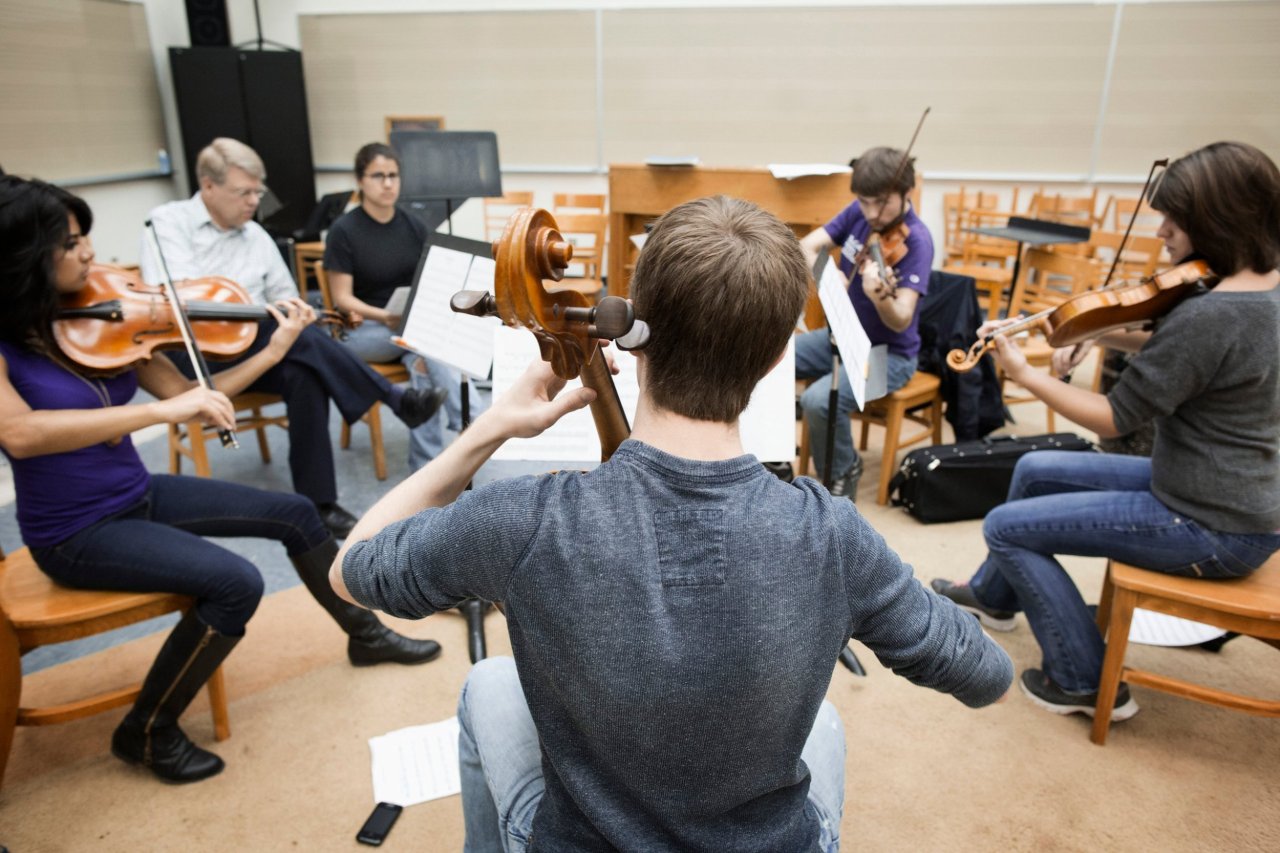Scientists are now confirming what poets have known all along. There is an intimate link between language, learning, and music, or, more specifically, rhythm. Nina Kraus and her colleagues at the Auditory Neuroscience Laboratory of Northwestern University are now looking at that phenomenon a little more closely. They have published numerous papers that show musical training improves several different brain functions. But their latest study focuses specifically on the relationship between rhythm, speech recognition, and reading. They got together 100 teenagers, stuck wires all over their heads to measure their brain waves, then asked them to tap their fingers to the beat of a metronome. Over the course of their tests they found those who had more musical training not only kept better time, but had better neural responses to speech. Conversely, kids who were poor readers tended to have difficulty tapping a consistent beat. Kraus suggests that musical training could help these poor readers maintain focus and grasp meaning more easily. As it happens, the music-streaming service Spotify has publicized a separate report that implies that listening to the right music while studying (classical for math; rock for humanities) helps improve concentration and grades. Kind of makes you want to clap your hands.
The Surprising Connection Between Rhythm and Reading























